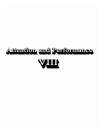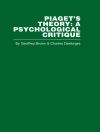This volume (one of two) is the first presentation of Schore’s comprehensive theory in book form, as it has developed since 1994.
In 1994 Allan Schore published his groundbreaking book,Affect Regulation and the Origin of the Self, in which he integrated a large number of experimental and clinical studies from both the psychological and biological disciplines in order to construct an overarching model of social and emotional development. Since then he has expanded his regulation theory in more than two dozen articles and essays covering multiple disciplines, including neuroscience, psychiatry, psychoanalysis, developmental psychology, attachment, and trauma.
Affect Dysregulation and Disorders of the Self contains writings on developmental affective neuroscience and developmental neuropsychiatry. It is absolutely essential reading for all clinicians, researchers, and general readers interested in normal and abnormal human development.
Sobre o autor
Allan Schore, Ph D, is on the clinical faculty of the Department of Psychiatry and Biobehavioral Sciences, UCLA David Geffen School of Medicine, and at the UCLA Center for Culture, Brain, and Development. He is the recipient of the American Psychological Association Division 56: Trauma Psychology ‘Award for Outstanding Contributions to Practice in Trauma Psychology’ and APA’s Division 39: Psychoanalysis ‘Scientific Award in Recognition of Outstanding Contributions to Research, Theory and Practice of Neuroscience and Psychoanalysis.’He is also an honorary member of the American Psychoanalytic Association. He is author of three seminal volumes, Affect Regulation and the Origin of the Self, Affect Dysregulation and Disorders of the Self and Affect Regulation and the Repair of the Self, as well as numerous articles and chapters. His Regulation Theory, grounded in developmental neuroscience and developmental psychoanalysis, focuses on the origin, psychopathogenesis, and psychotherapeutic treatment of the early forming subjective implicit self. His contributions appear in multiple disciplines, including developmental neuroscience, psychiatry, psychoanalysis, developmental psychology, attachment theory, trauma studies, behavioral biology, clinical psychology, and clinical social work. His groundbreaking integration of neuroscience with attachment theory has lead to his description as ‘the American Bowlby’ and with psychoanalysis as ‘the world’s leading expert in neuropsychoanalysis.’ His books have been translated into several languages, including Italian, French, German, and Turkish.












